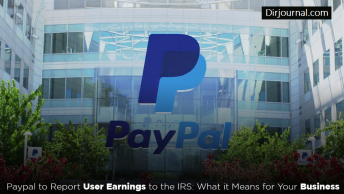Verizon and AT&T, two of the largest cellphone service providers, won the Spectrum auction, leaving Google behind.
A Spectrum auction is a process where governments throughout the world sell the rights to transmit signals. Companies who are in the business of providing wireless communication services need to bid at these auctions and win the licenses provided by the government.
Federal Communications Commission (FCC) conducts these auctions and assigns thousands of licenses to many firms. These auctions are sold for billions of dollars. This auction method for assigning Spectrum resources, which are scarce, is being used widely everywhere in the world.
Earlier, before these Spectrum auctions were started in the US, lotteries and administrative process were used. Later on, they were rejected because they were found not to be efficient enough.
These auctions are not awarded to everyone. The main thing that is looked into is efficiency – which means that the Spectrum has to be given to those that are best able to use it. The second consideration is maximization of revenue. Even with all the concern about efficiency, governments have to care about the revenues raised at these auctions as they are huge sums.
Armed with this knowledge about Spectrum, you would understand better the heavy competition there is, to win these auctions. In the auction that ended this week, both Verizon Wireless and AT&T won a greater part of radio Spectrum.
The winning of this auction is a great thing to happen to Verizon, as it will help Verizon in catching up with AT&T, which is currently the nation’s largest wireless carrier and also the largest portfolio holder of Spectrum.
Google also participated in bidding for C block frequencies for $4.7 billion, but lost the auction to Verizon. C block frequencies can be used for wireless voice and data service nationwide.
According to analyst, Jason Armstrong, Verizon has taken a risk in bidding for these frequencies. He said that the C block frequencies that Verizon bought have open-access restrictions, A block frequencies have risks with interference, and the few licenses in the B block that Verizon bought have very high valuations.
AT&T on the other hand, got the okay for its bid for licenses owned by Aloha Spectrum Holdings, which will enable it to expand wireless services or even add broadcast video, and agreed to pay $2.5 billion. According to IDG News Service, AT&T’s section of the bid covers 196 million US residents out of the 303 million and 72 of the top media markets in the country out of the total 100. Their plan is to use the Spectrum for combining data, voice and video transmissions. The slice that was purchased was not part of the FCC auction.
This auction had a secret bidding going on for seven weeks and made the government treasury richer by $19.12 billion.
With both Verizon and AT&T making their foothold on the Spectrum stronger, it is highly unlikely that competition will bring the prices down for consumers; although the new Spectrum may improve the wireless service quality.
This Spectrum uses higher frequencies that were earlier used by UHF TV stations. Signals with these frequencies possess better ability to penetrate buildings than the current cellular service.
Wireless customers may need to buy handsets that are compatible with the new frequencies; otherwise they may not experience any noticeable changes in their service. There may be new wireless data plans or even a wireless TV broadcasting soon.












